How long will it take to get ready for my first 5K? How long do I need to train for my first 5K?
HOW do I even START training for a 5K??
These are the biggest questions I get from people ready to knock 3.1 miles off their running to do list. And often in a panic when the race sneaks up on them.
Running your first 5K is a huge achievement and one you want to enjoy. That means knowing a few tricks to get you through training injury free and feeling ready at the start line (or at least managing your nerves well!).
How to Train for Your First a 5K
Did your first 5K land on you by surprise? Maybe a friend shoved a last-minute Turkey Trot on you or you’ve realized there’s a charity run you signed up for and forgot about.
It suddenly hits you: you’ve only got a few weeks to get your behind in gear and get moving!
5K Training Tips
Here’s an overview of what we’re going to cover in the following sections. Consider it your quick read if you’re short on time.
- run/walk is not just acceptable, but usually necessary to get your body used to the pounding of running
- remember to enjoy the process – celebrate each time you go a bit farther
- giving yourself enough time to train means the race will hurt less and you’re less likely to get injured
- anyone can do a 5k!! Don’t psych yourself out, at the start line you’ll see a whole variety of people
- the average 5K time or a “good 5K time” are probably a lot slower than you’d guess
- stop worrying about your weight or your size or your stride, none of that is what makes a runner; what makes a runner is the dedication and the determination
All right with those in mind, let’s dive in to your most common 5k training questions and make this a reality.
Is It Okay to Run/Walk Your First 5K?
Absolutely! There’s nothing that says you must only run to be a runner.
Many new runners fear the run/walk or feel like it means you’re somehow “less” of a runner. Put that idea out of your head right now!
Even if you walk or jog, you’re still a “real runner.”
- Alternating running and walking is totally normal.
- I guarantee you’re going to see plenty of walkers during your race. There’s no shame in walking.
- Using a run/walk method to train will even help you prevent injury.
In fact, the run/walk method is a real thing. It’s called the Galloway Method and many runners even Boston Qualify runners using it! (But let’s not get too far ahead of ourselves.)
The Galloway Method is one of the best ways to start running because it allows you to slowly increase your run time.
- Your body has plenty of room to adjust and get used to each new pace.
- You’re increasing your effort, but it’s gradual—baby steps, ya know?
- Nothing will derail your 5K like an overuse injury, so don’t overdo it at first.
- You know the saying: slow and steady wins (or at least finishes) the race.
Here’s how using the Galloway Run/Walk Method might look after you spend at least 10 minutes warming up:
Week 1 – 3:3 (run to walk intervals in minutes)
Week 2 – 3:2 (run to walk intervals)
Week 3 – 3:1 (run to walk intervals)
Week 4 – 4:1 (or maybe stay at 3: 1 for a while—see how you feel)
How Long Should Your Long Run Be for a 5K?
In most training plans on Saturday or Sunday there is a long run. For the marathon this builds up to 20 miles many times, but what about the 5K?
For your first 5K you will likely complete at least a 3 mile day before the race. That may be a lot of walking, but you won’t be too far off of the finish line distance with your training.
Those who are training to hit a new PR in the 5K will likely increase mileage throughout the week and find their long run is 5-6 miles for newer runners, up to 10+ miles for advanced runners.
Celebrate ALL Your Progress
As you complete each run, allow yourself to celebrate each little bit of progress!
Don’t judge yourself based on what you think you need to be doing or what you wish you could do. You’ll get there eventually. For now, start out slow and take PLENTY of walk breaks.
Maybe, after you train for a month or two, you’ll find 5:1 or 8:1 is your perfect split.Fabulous!
Stick to it!!
When you find a comfortable split, focus on increasing your distance or use it to play with your pace during the run portion. The objective is to build up endurance, not to feel like you need to continuously run for hours on end.
If you’re worried about your walk breaks slowing your pace down, don’t sweat it!
Over time you’ll also work on keeping up a faster pace during the walk portion. Some runners may even find their walk time is nearly as fast as their jog!
What’s a Good 5K Time for a Beginner?
One of the best ways to relieve pressure around your first 5K attempt is to remember this: the number one goal is to improve.
You don’t need to be the fastest to the finish.
You don’t need to hit a certain time to be successful.
Whatever time you set the first go around gives you new information about what you can do and a goal to aim for in the next 5K (trust me there’s always a second).
If you are dying for specific numbers, checkout this post for good 5K times based on age, experience and gender.
If you want to continue to build your running skills, aim for a finish you feel good about.
Set a baseline.
If your first 5K seems slow, GREAT! You’ll only move forward from there. In fact, a low baseline puts you on track for those two little letters that thrill runners: P.R.
P.R. stands for “personal record,” also called P.B. for “personal best,” (but the letters P.B. make me hungry, so around here we stick with P.R.). Enjoy each time you manage to set a record. A P.R. is occasion for celebration!
Great, I understand setting a low baseline so I get better each time, but realistically, what’s a reasonable goal?
How Long Does it Take to Run a 5K?
The average 5K finish time depends on age and gender, but on the whole most runners will finish between 30 – 50 minutes. While those who are walking will finish under an hour.
Men tend to have faster race times due to gender differences in running, but also now because there is a larger pool of women finishing most races! That means more diversity in skill levels and I hope encourages you to give it a go.
Determining your finish time, means understanding your current training pace.
Let’s do the math:
- A power walk at 4.0 MPH will take you about 46 minutes
- A 12-minute mile (that’s 5.0 MPH) will take you about 37 minutes
- A 10-minute mile (at 6.0 MPH) will take you about 31 minutes (here’s a guide to running a 30 minute 5K)
All of those are totally awesome times!
Just because the race winners are finishing in 15 minutes doesn’t mean boo.
You aren’t trying to win! You’re focusing on making progress and enjoying the day, so you’re ready to do this again and again!
Average 5K Finish Times
RunRepeat has collected a lot of data over the years to give this breakdown of average finish times by age and gender.
Women:
- Under 20 – 38:38
- Age 20 to 29 – 38:44
- Age 30 to 39 – 40:13
- Age 40 to 49 – 41:40
- Age 50 to 59 – 43:57
- Age 60+ – 48:41
Men:
- Under 20 – 31:28
- Age 20 to 29 – 33:19
- Age 30 to 39 – 34.36
- Age 40 to 49 – 35.24
- Age 50 to 59 – 36:34
- Age 60+ – 40:42
How Long Does it Take to Train for a 5K?
For beginning runners, training for a 5K could take 6 weeks to 16 weeks.
There are a lot of variables, so let’s break down a few to see where you are and help you decide how long you need. Looking at the different options below see where you best fit in to pick a reasonable training timeline.
You’re New To Exercising Consistently
If you’re starting from scratch, allow yourself at least 12 weeks to build up safely.
You don’t want to derail your progress with an injury, so building up slowly will help you get into a routine of running regularly.You won’t feel burned out and ready to stop immediately post-race.
Start slow and you’ll feel ready to P.R. in race number 2!
You’re New To Exercising Consistently
If you’re starting from scratch, allow yourself at least 12 weeks to build up safely.
You don’t want to derail your progress with an injury, so building up slow will help you get into a routine of running regularly.You won’t feel burned out and ready to stop immediately post-race.
Start slow and you’ll feel ready to P.R. in race number 2!
Your Current Fitness Level
Are you currently walking daily or biking frequently? Are you in pretty decent shape but looking to add running to your regular routine?
If you’re starting with a bit of exercise experience under your belt, you’ll still want to allow yourself at least 10 weeks.
Running uses different muscles and requires you to build stamina and cardio capacity.
How Much Previous Running Experience You Have
Are you taking consistent fitness classes or engaging in a little running, but somewhat sporadically?
Allow at least 8 weeks.
Even if you’ve been a runner in the past and you’re feeling pretty fit or if you run occasionally, you’ll still want to give yourself time to train. 8 weeks will allow you to ramp up running routine and turn it into a regular running habit.
Big Goal Times
The other factor that’ll influence how long you’ll need is what your goal time is. If you have specific goals in mind, your training program will focus on speed drills and other techniques such as running intervals to help you run faster.
This can take longer to train for compared to having a goal of merely finishing a 5K.
While an 8 week plan might get someone to the finish line, it may not the the plan that will cut 5 minutes off your time. If you’re setting a BIG goal then I often recommend assuming it will take multiple training cycles.
And knowing that the plan should look different to PR than just to finish.
Learning how to pace a 5K is going to be important for hitting those new times.
Printable First 5K Training Plan
A key feature of enjoying your first 5K is to have a training plan that is truly doable.
Read more on my Couch to 5K plan and get a free printable version to follow for 9 weeks.
Tips for Following This 5K Training Plan for Beginners
This 5K training schedule includes a combination of running, walking, and rest days. This combination reduces the likelihood of injury, stress, and fatigue while making running fun and enjoyable.
When your schedule calls for an easy run, always begin with a five to ten-minute warm-up with dynamic stretches and brisk walking.
A warm-up prepares your body for running by increasing blood flow to your muscles and raising your body temperature. It can also help reduce muscle soreness and injury risk.
Note this program only uses only 3 days a week of running. While other programs might have a whole list laid out from Monday to Friday, this one allows you to get used to the schedule with more flexibility.
This is plenty to get you started, but for a bonus spend a little time 2 or 3 other days of the week cross-training. Cross-training can be cycling, yoga, swimming, or any other activity other than running that you enjoy.
Don’t worry about speed workouts like tempo runs or interval training when building towards your first 5K. The main goal is teaching your body how to have enough endurance.
Another great tip is to incorporate more fitness into your daily routine—take the stairs, get a standing desk and park out in the boonies when you go to the store. Even taking a few long walks on your “off” days will help you build your fitness.
For runners, these types of cross training are most useful to help you build strength, endurance and even avoid injury.
Don’t make the cardinal runner sin of neglecting things like the post run stretching to loosen tight hips or stopping your other workouts like biking and strength training.
What Pace Should I Run When Just Starting to Train for a 5K?
It’s essential that your first runs be done at a comfortable effort and pace.
Most beginners push themselves too hard because they have no idea what an easy or comfortable pace should be.
A comfortable pace is one that you are confident you can maintain throughout your run.
It is preferable to finish with the feeling that you could have run longer or faster than to finish exhausted.
Listening to your breath is an easy way to gauge your current pace and level of effort. If you’re not gasping for air and can talk while running, you’re going at the right pace.
- Could you speak a few sentences without gasping
- Is your HR below at least 160? (read more on running with high heart rate)
- Are you able to complete the next days workout without being exhausted
What Running Gear Do I Need for a 5K?
When you first start out, it’s tempting to focus on the equipment you need. In fact, it even gives you an excuse to procrastinate. (I can’t run until I get a pair of compression socks!)
Here’s the deal: don’t get too worked up about having the perfect gear.
Truthfully, running doesn’t require much and having started back in the day when cotton t-shirts and log baggy shirts were in vogue, I can tell you: gear isn’t what makes you a runner.
Showing up, doing the work and putting one foot in front of the other is what’s going to matter most!
That being said, if new gear is going to get you motivated (it definitely motivates me!!), here are the most important pieces of gear in order:
- Finding the right running shoes
- Why running socks matter
- Anti-chafe stick
- Dri-FIT (or moisture-wicking) shirt
- Dri-FIT (or moisture-wicking) Capri pants or shorts
- My summer must haves
- My winter must haves
How to Be Ready for Race Day
After completing a 5K training plan, you may want to participate in a 5K race or fun run. You might even have one already planned.
It’s always useful to plan ahead of time in order to feel your best on race day. Here are my top three tips to make sure you’re all ready for that 5K:
Practice Under the Same Conditions
When training, try to replicate race-day conditions. Running early in the morning, for example, is a good way to prepare for an early-morning race because your body will be more familiar with running during that time of day.
In the same way, try to figure out what the weather forecast is for the race to practice under similar conditions.
Figure Out Your Race Day Fuel
Figure out what kind of fueling works best for you before a race. You don’t want stomach issues on race day to ruin your experience.
So, during training, try out different pre-run snacks or beverages and then use that strategy on race day.
Wear Gear You’re Used To
Wear running gear that you are familiar with on the day of the race. Race day is not the time to break in new running shoes or outfits.
Set out your best running shoes and most comfortable running clothes the night before the race. Also set out your bib number and any snacks or drinks you plan to bring to the starting line.
Then, when race day comes, you’ll have less to worry about and will be able to focus on having a great running experience.
Get Proper Rest
Getting proper rest is key for being ready for a 5K. Your body needs to recover from your workouts in order to perform its best on race day.
If you’re not getting enough sleep, it can make it harder for you to focus, increase your risk of injury, and even slow your running progress.
To get the most out of your 5K training plan, aim to get 7-8 hours of sleep a night. This will help your body to repair itself and be ready for your race day.
How to Prepare Mentally for Your 5K Race Day
Completing a 5K requires more than just physical preparation. Running can also take a mental toll, so it’s important to plan ahead and prepare your mind for race day. Here are some tips:
Visualize the Finish Line
Visualization is a powerful tool. Before the race, focus on what you will feel like when you cross the finish line. Visualize yourself crossing the finish line with a smile on your face and feeling accomplished.
Surround Yourself with Positive People
Surround yourself with people who will encourage and motivate you before, during, and after the race. These can be family members, friends, or teammates. Their positive attitude will help keep you going when you feel like giving up.
If you’re looking for more support, check out our Online Running Group to find like-minded people and a great community for runners of all levels.
Focus on the Journey
When you are running, focus on how you feel in the moment. Notice how your feet hit the ground and how the scenery changes around you. Focus on experiencing each step of the journey, rather than worrying about how long it may take.
Celebrate Small Victories
Don’t forget to enjoy every small victory along the way! Celebrate each mile you complete, and congratulate yourself for taking on this challenge. Every step is a victory that should be celebrated!
There ya have it!
That’s all you need to get ready for running your first 5K!
Remember to go slow and steady, alternate runs with walks, and build up your speed and distance as you go. Before you know it, you’ll have a 5K under your belt!
Looking for more training tips:
- What to Eat Before a Run
- How Far Did I Run?
- Best Free Running Apps
- Garmin Vs Apple Watch
- Does Running Tone Your Legs?
Other ways to connect with Coach Amanda
Instagram for Daily Inspiration: RunToTheFinish
Facebook for all the chatter: RunToTheFinish
Pinterest for all the running tips: RunToTheFinish
👉Still have questions?
No need to figure it out on your own! Join our LIVE group coaching program for just $27.99/month.
9 Running Coaches are there to help you through this and answer all the other questions that come up and we have additional free training plans.

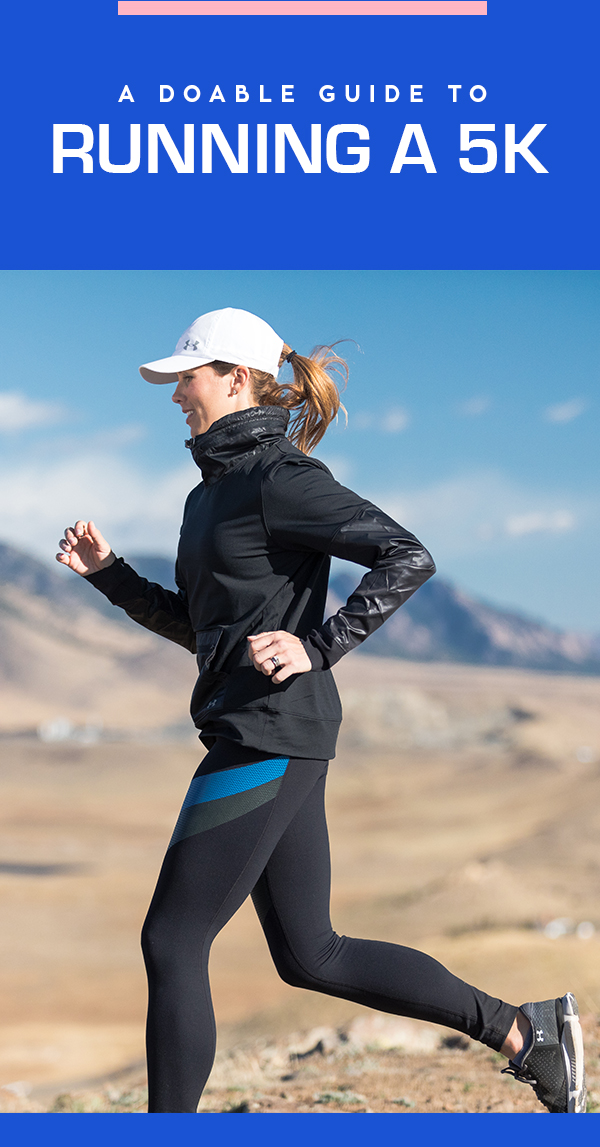
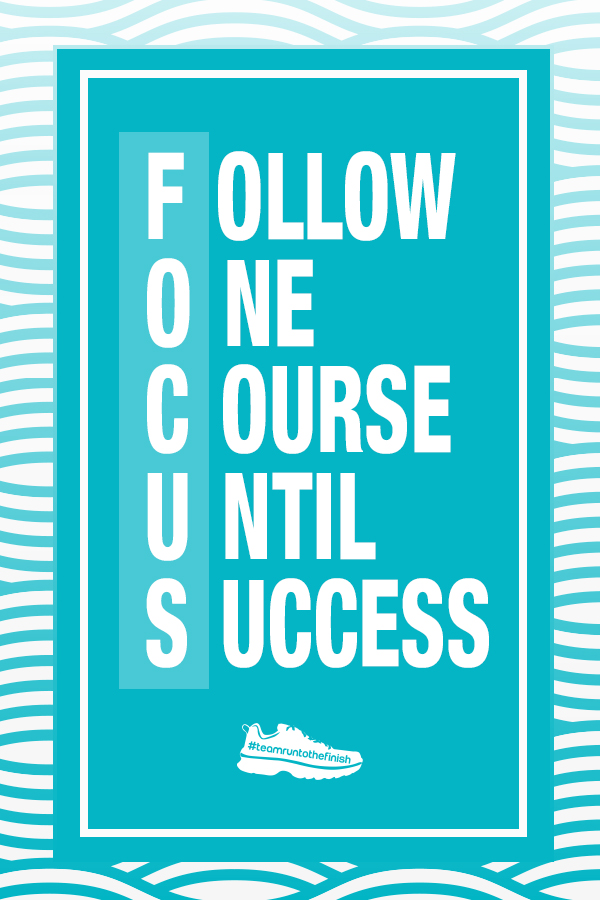
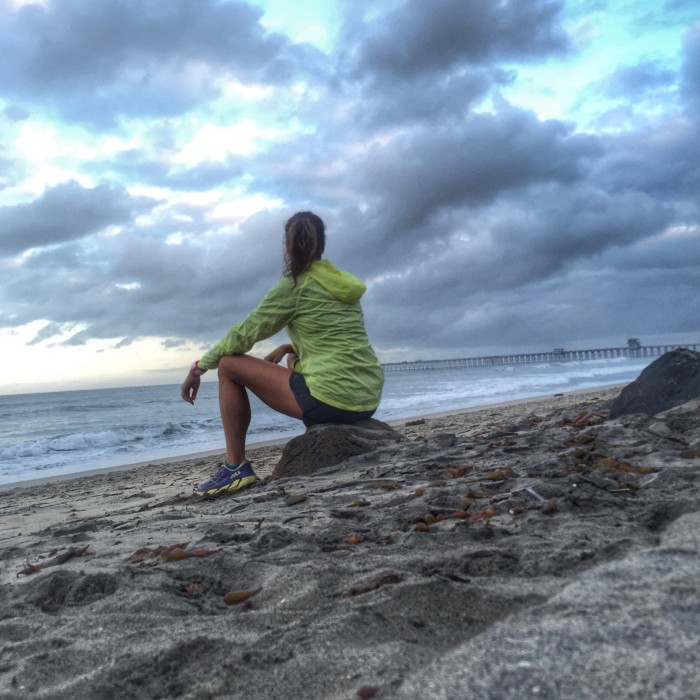

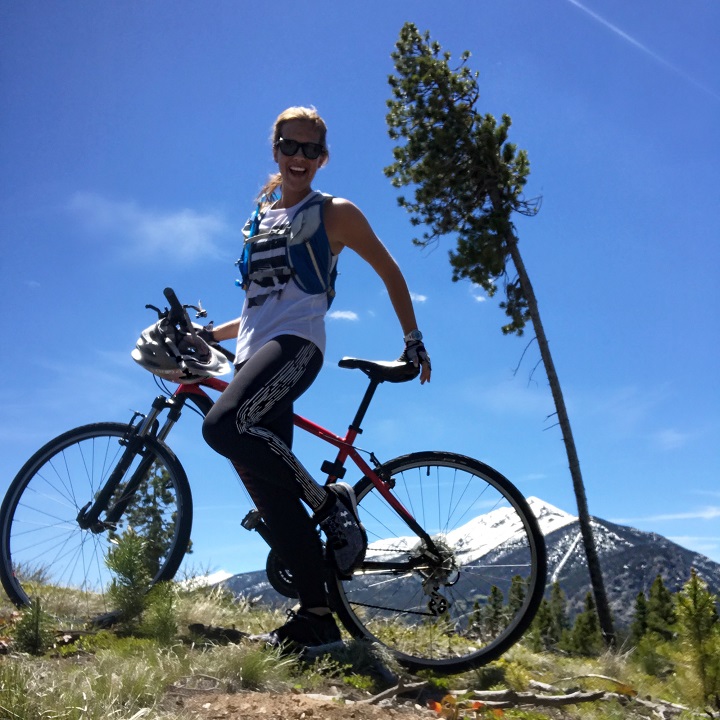


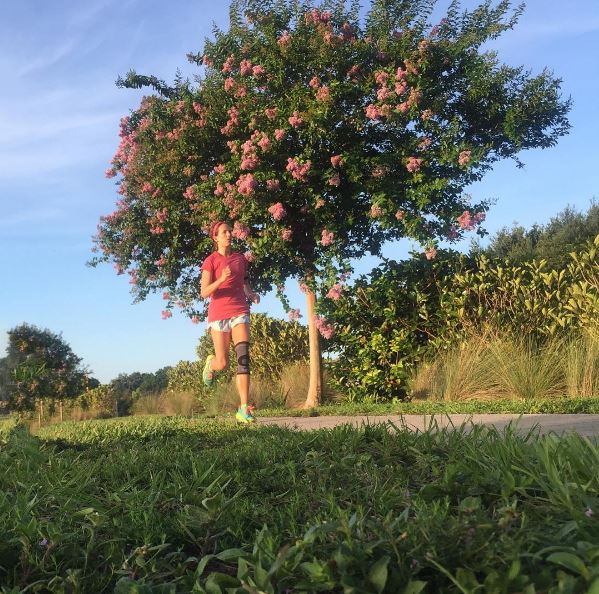 5 Best Knee Braces for Running (+ What to Consider)
5 Best Knee Braces for Running (+ What to Consider)

Nina @waveforwellness.com
That was one comprehensive article! Really, beautifully written. I’m not a beginner but I haven’t ran in almost a year and I just had a baby so I totally feel like one. But I’m hoping to get back in the saddle with a nice 5k this spring. Wish me luck!
Laurine
Thanks Harini 🙂
Meg
LOVE these tips and am currently trying to run a 5k (for the first time in my life)!
Since January, I’ve taken up running again – after a few spurts over the past 5 years. This has been the most consistently I’ve ever run before – and have achieved more than ever! – with the goal of being able to run 5k without walk breaks/stopping. I’ve made huge progress, but am getting stuck basically at the Week 8 – Workout 3 spot and just can’t seem to cross over from running 1 mile + Walking (for only a minute or two) + Run 1 mile to Running 2 miles with no walk break. I’ve been able to run 15mins without stopping. Or working up to 1.5 miles. But something is giving out/I feel like I’m dying.
I’m sure at this point, it’s mainly mental. But also, maybe there’s something else I can do to get beyond this point! I’ve tried running slower, I even got on a treadmill to help pace myself.
Any recommendations to push past this block?
amanda
One of the things that can really help is making sure you do a good dynamic warm up. Or even making sure you walk for like 5-7 minutes before you start running, there are a number of studies that show this helps with endurance.